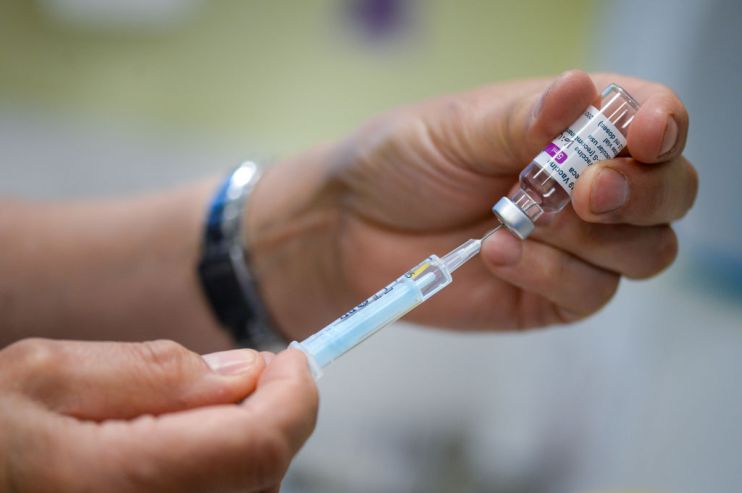Study: Two doses of Astrazeneca jab could be 90 per cent effective

Two doses of the Oxford/Astrazeneca jab could be around 85 to 90 per cent effective, a new study has shown, suggesting its real-world protection is higher than in clinical trials.
The study, published by Public Health England (PHE), showed the estimated effectiveness of the jab was 89 per cent, compared to unvaccinated people.
That compares to 90 per cent effectiveness against symptomatic disease for the Pfizer/BioNTech jab.
PHE said the preliminary findings were the first of its kind on the effectiveness of two doses of the Astrazeneca jab in a real-world setting.
However, it warned it had “low confidence” in the findings and the results would be not be conclusive until more evidence had been gathered.
“This new data highlights the incredible impact that both doses of the vaccine can have, with a second dose of the Oxford/AstraZeneca vaccine providing up to 90 per cent protection,” vaccines minister Nadhim Zahawi said.
A spokesperson for Astrazeneca said: “This latest real-world data from PHE adds to the growing body of evidence that demonstrates the effectiveness of our vaccine against Covid-19.”
Despite suffering one of the worst global death tolls from the pandemic, the UK has had one of the fastest vaccine rollouts.
Shots manufactured by Pfizer and Astrazeneca have been rolled out since December and January respectively, while the Moderna jab was introduced in April.
PHE said there was a “small reduction in effectiveness” from 10 weeks after the first Pfizer shot before the second jab is given.
The UK extended the gap to 12 weeks, though Pfizer warned there was a lack of evidence of its efficacy outside the three-week gap used in trials.
Last week Britain cut the gap between doses down to eight weeks for over 50s due to concerns about the spread of the more transmissible Indian variant.